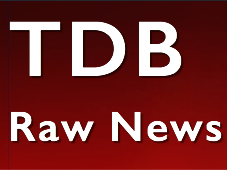Headline: Rigged rules mean “winner takes all” for rich elites
Wealthy elites have co-opted political power to rig the rules of the economic game, undermining democracy and creating a world where the 85 richest people own the wealth of half of the world’s population, worldwide development organisation Oxfam warns in a report published today.
Working For the Few, published ahead of this week’s World Economic Forum in Davos, details the pernicious impact that widening inequality is having in both developed and developing countries, helping the richest undermine democratic processes and drive policies that promote their interests at the expense of everyone else.
Rising concerns

Oxfam New Zealand Executive Director, Barry Coates, said, “Rising inequality is a pervasive and deep problem, within and between societies. It is not only the elites gathering in Davos who need to hear the message – this affects societies in the developing world, including our Pacific island neighbours, as well as countries like New Zealand.
“High inequality means worse outcomes for all, even the rich, as a result of social problems such as low education and skills, ill-health, crime, violence and social unrest,” said Coates.
The report says that there is a growing global public awareness of this power-grab. Polls done for Oxfam in six countries (Brazil, India, South Africa, Spain, the UK and US) show that most people questioned in all those countries believe that laws are skewed in favour of the rich.
Action needed
Oxfam wants governments to take urgent action to reverse the trend. It is asking those attending the WEF to make a six-point personal pledge to tackle the problem.
Winnie Byanyima, Oxfam Executive Director who will attend the Davos meetings, said: “It is staggering that in the 21st Century, half of the world’s population own no more than a tiny elite whose numbers could all sit comfortably in a single train carriage.
“In developed and developing countries alike, we are increasingly living in a world where the lowest tax rates, the best health and education and the opportunity to influence are being given not just to the rich but also to their children.
“Without a concerted effort to tackle inequality, the cascade of privilege and of disadvantage will continue down the generations. We will soon live in a world where equality of opportunity is just a dream. In too many countries economic growth already amounts to little more than a ‘winner takes all’ windfall for the richest,” said Byanyima.
The problem of tax havens
Policies successfully imposed by the rich in recent decades include financial deregulation, tax havens and secrecy, anti-competitive business practice, lower tax rates on high incomes and investments and cuts or underinvestment in public services for the majority. Since the late 1970s, tax rates for the richest have fallen in 29 of the 30 countries for which data are available, meaning that in many places the rich not only get more money but also pay less tax on it.
This capture of opportunities by the rich at the expense of the poor and middle classes has helped create a situation where seven out of every ten people in the world live in countries where inequality has increased since the 1980s and one per cent of the world’s families now own 46 per cent of its wealth (US$110 trillion).
The report says:
- Globally, the richest individuals and companies hide trillions of dollars away from the tax man in a web of tax havens around the world. It is estimated that US$21 trillion is held unrecorded and off-shore;
- In the US, years of financial deregulation directly correlates to the increase in the income share of the top one per cent which is now at its highest level since the eve of the Great Depression;
- In India, the number of billionaires increased tenfold in the past decade, aided by a highly regressive tax structure and the wealthy exploiting their government connections, while spending on the poorest remains remarkably low;
- In Europe, austerity has been imposed on the poor and middle classes under huge pressure from financial markets whose wealthy investors have benefited from state bailouts of financial institutions;
- In Africa, global corporations – particularly those in extractive industries – exploit their influence to avoid taxes and royalties, reducing the resources available to governments to fight poverty.
Oxfam’s demands
Oxfam is calling on those gathered at WEF to pledge to:
- Support progressive taxation and not to dodge their own taxes;
- Refrain from using their wealth to seek political favours that undermine the democratic will of their fellow citizens;
- Make public all the investments in companies and trusts for which they are the ultimate beneficial owners;
- Challenge governments to use tax revenue to provide universal healthcare, education and social protection for citizens;
- Demand a living wage in all companies they own or control;
- Challenge other members of the economic elite to join them in these pledges.
Oxfam is calling on governments to tackle inequality by cracking down on financial secrecy and tax dodging; investing in universal education and healthcare; and agreeing a global goal to end extreme inequality in every country as part of the post-2015 Millennium Development Goal negotiations.
Coates said, “Rising inequality is not an inevitable trend. It results from the policies of governments and the governance of corporations that allows over-inflated salaries and income to the few; ‘opportunity capture’ for the children of the wealthy; and ‘policy capture’ so that the rules are bent to favour those who are already rich.
“Meeting the challenges of ending extreme poverty means that we also need to tackle extreme inequality,” said Coates.
—





